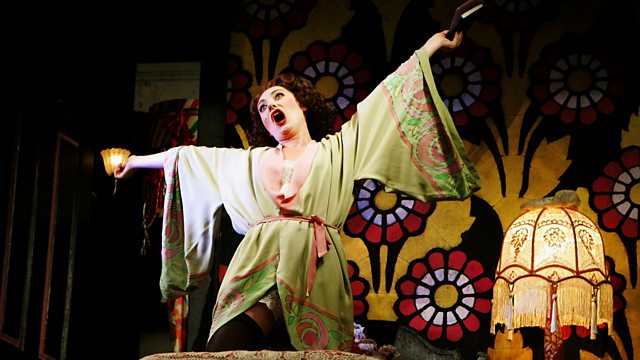
Episode 3
Donald Macleod explores Italian opera, focusing on the tradition of opera seria - a more formal mode of opera. With music by Pergolesi, Galuppi, Gluck, Jomelli, Mozart and Haydn.
Continuing Donald Macleod's exploration of two centuries of Italian opera from Monteverdi to Rossini. Wednesday's programme picks up where Tuesday's left off, to chart a course through the 18th-century tradition of opera seria - serious opera - with music by some very familiar names and some relatively obscure ones. Giovanni Battista Pergolesi is probably best known today for his comic intermezzo Il serva padrona, and for providing some of the source material for Stravinsky's ballet Pulcinella.
We hear from him here in his serious mode, in an opera written three years before his untimely death at the age of 26. Baldassare Galuppi and Niccolò Jommelli were two of the foremost operatic composers of the mid-18th century, now almost entirely overlooked; Jommelli in particular is a master of thrillingly expressive music, and well overdue for a revival. Christoph Willibald Gluck's Orfeo ed Euridice was one of the most influential operas of its time, still widely performed today. Finally, extracts from an early opera by Mozart and a late one by Haydn. Mozart's, the work of a dazzlingly precocious 14-year-old, was shelved for two centuries despite the great success of its opening run. Haydn's never even got the opening run, planned for London in 1791 - it fell foul of local political rivalries and had to wait nearly 160 years for its first performance.
Last on
Music Played
-
![]()
Giovanni Battista Pergolesi
Prigionier superbo
Performers: Angelo Manzotti (Viridate), Ezio di Cesare (Sostrate), Lucia Rizzi (Rosmene), Orchestra Filarmonica Marchigiana, Marcello Panni (conductor)
- Bongionvanni GB 2221/22-2.
-
![]()
Baldassare Galuppi
Didone abbandonata – extract from Act 1
Performers: Stefania Grasso (Didone), Orchestra del Teatro Lirico Sperimentale di Spoleto, Franco Piva
- Bongionvanni GB 2422/24-2.
-
![]()
Christoph Willibald Gluck
Orfeo ed Euridice – extract from Act 2 scene 1
Performers: Bernarda Fink (Orfeo), Freiburger Barockorchester, RIAS Kammerchor, René Jacobs
- Harmonia Mundi HMC 901742.43.
-
![]()
Niccolò Jommelli
Didone abbandonata – Act 3, conclusion
Performers: William Kendall (Iarba), Arno Raunig (Osmida), Mechthild Bach (Selene), Dorothea, Röschmann (Didone), Stuttgarter Kammerorchester, Frieder Bernius (conductor)
- Orfeo C 381 953 F.
-
![]()
Wolfgang Amadeus Mozart
Mitridate re di Ponto
Performers: Natalie Dessay (Aspasia), Röschmann (Didone), Cecilia Bartoli (Sifare), Les Talens Lyriques, Christophe Rousset (conductor)
- Decca 460 772-2.
-
Untitled
Music included: Recit: Io sposa di quel mostro?; Duet: Se viver non degg’io
![]()
Joseph Haydn
Orfeo ed Euridice – extract from Act 3 ('Al tuo seno fortunato')
Performers: Cecilia Bartoli (Genio), Academy of Ancient Music, Christopher Hogwood
- Oiseau Lyre 452 668-2.
Broadcasts
- Wed 5 May 2010 12:00����ý Radio 3
- Wed 5 May 2010 22:00����ý Radio 3
Beethoven Unleashed – the box set
What was really wrong with Beethoven?
Composers A to Z
Who knew? Five eye-opening stories from Composer of the Week
Five reasons why we love Parry's Jerusalem
What is the strange power of Jerusalem which makes strong men weep?
A man out of time – why Parry's music and ideas were at odds with his image...
The composer of Jerusalem was very far from the conservative figure his image suggests.
Composer Help Page
Find resources and contacts for composers from within the classical music industry.





